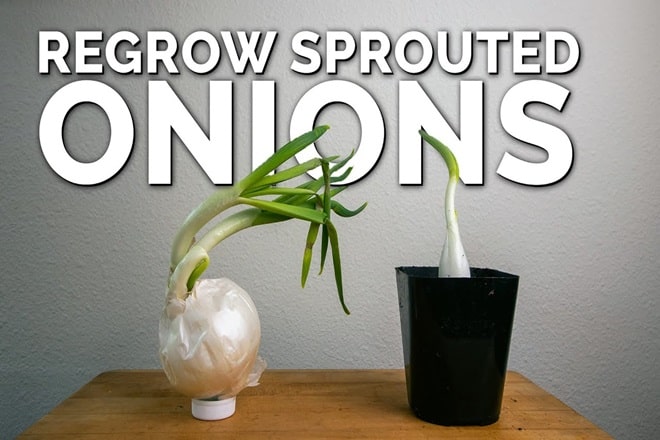
Remove the thin, paper-like outer layer of the sprouted onion bulb. Use your fingernails to peel away the outer layer from the top of the bulb. Once peeled, discard this outer layer.
Use a knife to cut away the layers of onion from the sprout. The sprout will grow from the top of the onion bulb. Cut each layer of onion vertically without damaging the sprout. Continue similarly on the other side and carefully separate each layer of the onion.
If you don’t have a knife, you can peel each layer of onion by hand.
You can eat these onion layers if they are still firm and crispy, but remember to wash them before use. If the onion is soft and mushy, discard it immediately.
Separate the onion sprouts. You will see the sprouts developing in the center of the onion bulb. Some may have sprouted outside the bulb, while others have not. Gently separate each sprout to give them enough space to grow. With proper care, each sprout will develop into a new onion bulb.
Soak the onion sprouts in water until roots develop. You can soak the sprouts in one or more glasses of water. After a few days, white roots will start to appear at the base of each sprout.
If the white roots have grown, you can plant the onion sprouts into the soil immediately.
If the roots are brown and dry, they are dead. Wait until new white roots develop.
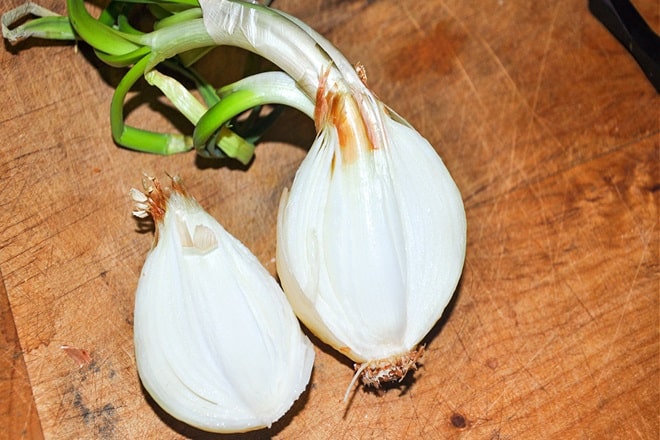
Plant the onion sprouts about 2.5 cm deep in high-quality organic soil. Dig a hole for each sprout and fill it so that only the leaves are above the soil. Each hole should be at least 7.5 cm apart, or plant them in separate pots to give each sprout enough space to grow. You can add a thin layer of mulch on top of the soil to support the growth of the onions.
Whether growing indoors or outdoors, ensure that the onions receive enough sunlight.
If you live in a cold climate, start by planting the onion sprouts in pots and gradually move them outdoors. Onions need time to acclimate to the new environment.
In winter, keep the plants indoors to protect them from the cold.
The onion bulbs will develop in about 60-80 days.
Ensure regular watering every few days. Although onions are hardy, they need plenty of water to grow. Use a watering can or spray bottle to apply a small amount of water around the base of the onions. Be sure to check the soil to ensure proper drainage.
If using mulch, onions only need to be watered with 2.5 cm of water per week.
Check and remove weeds daily (if any). As the onions grow, weeds will inevitably appear around them. Wear gardening gloves and pull the weeds out by the roots to prevent them from growing back.
Spray a fungicide twice a week. The fungicide will prevent the development of harmful fungi and keep the onions healthy. Just a small amount of spray on each onion plant is sufficient.
If you prefer organic methods, you can use solutions such as hydrogen peroxide or copper sulfate as alternatives to chemical pesticides.
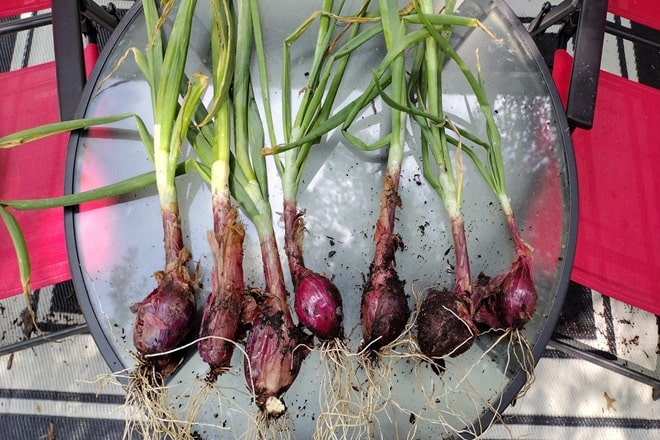
The onion bulb is fully exposed above the soil.
The green sprouts are wilting and turning brown.
Flower stalks appear.
Ý kiến bạn đọc
Những tin mới hơn
Những tin cũ hơn
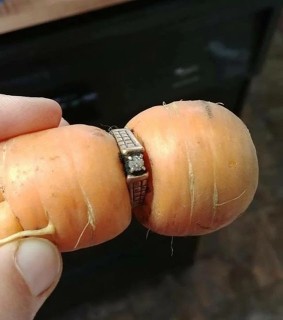 The most unique carrots in the world!
The most unique carrots in the world!
05.09.2024
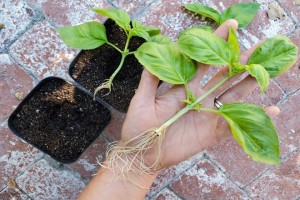 Guide to Propagating Basil Cuttings for Beginners
Guide to Propagating Basil Cuttings for Beginners
30.08.2024
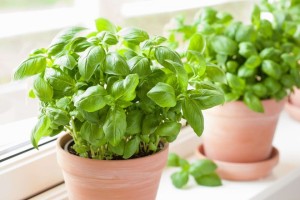 How to take care of basil plant indoors for Beginners
How to take care of basil plant indoors for Beginners
30.08.2024
 Interesting Facts About Ants
Interesting Facts About Ants
23.08.2024
 Coucal bird: Natural Enemy of Snakes
Coucal bird: Natural Enemy of Snakes
22.08.2024